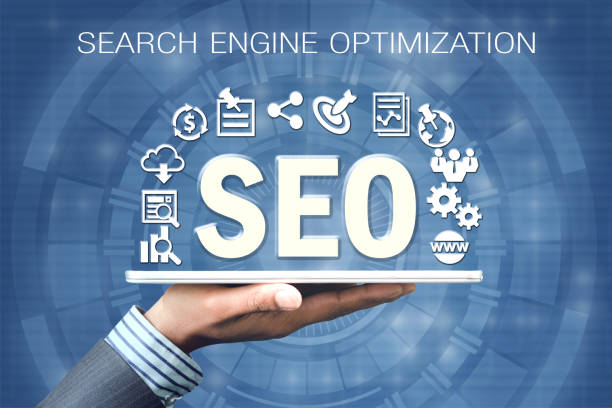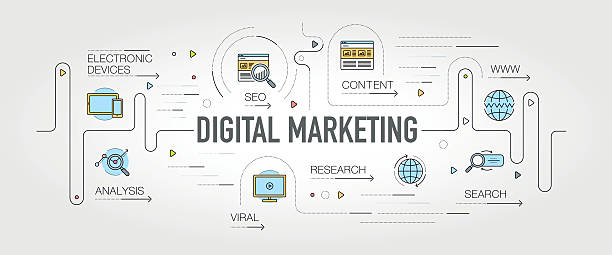Table of Contents
In today&8217;s interconnected world, digital marketing has revolutionized how businesses engage with consumers, promote their products or services, and drive growth. This article explores the evolution, strategies, and impact of digital marketing, highlighting its pivotal role in shaping modern business practices and consumer behavior.
Evolution of Digital Marketing
Digital marketing has evolved significantly since the advent of the internet. Initially, businesses relied on basic websites and email campaigns to reach online audiences. However, the landscape quickly expanded with the rise of social media platforms, search engine optimization (SEO), pay-per-click (PPC) advertising, and sophisticated analytics tools.
1. Search Engine Optimization (SEO)
SEO plays a critical role in digital marketing by optimizing websites to rank higher in search engine results pages (SERPs). By incorporating relevant keywords, creating quality content, and improving website performance, businesses can attract organic traffic and enhance their online visibility.

2. Social Media Marketing
Social media platforms like Facebook, Instagram, Twitter, and LinkedIn have become powerful tools for businesses to connect with their target audiences. Social media marketing involves creating engaging content, running targeted ads, and fostering relationships through interactions and community building.
3. Content Marketing
Content marketing focuses on creating and distributing valuable, relevant, and consistent content to attract and retain a clearly defined audience. This includes blog posts, videos, infographics, podcasts, and eBooks that educate, entertain, or inspire potential customers, ultimately driving profitable customer action.
4. Email Marketing
Despite the emergence of newer digital marketing strategies, email marketing remains a highly effective method for nurturing leads and maintaining customer relationships. Personalized email campaigns can deliver targeted messages, promotions, and updates directly to subscribers&8217; inboxes, enhancing engagement and driving conversions.
Strategies and Techniques
Successful digital marketing campaigns leverage a combination of strategies and techniques tailored to specific business goals and target audiences:
- Target Audience Segmentation: Understanding the demographics, preferences, and behaviors of your target audience allows for more personalized marketing efforts.
- Data-Driven Insights: Utilizing analytics tools such as Google Analytics, Adobe Analytics, or social media insights provides valuable data to measure campaign performance, identify trends, and optimize strategies in real-time.
- Conversion Rate Optimization (CRO): Optimizing landing pages, calls-to-action (CTAs), and user experience (UX) elements helps maximize the percentage of website visitors who convert into customers or leads.
- Integrated Campaigns: Combining various digital marketing channels (e.g., SEO, PPC, social media) in cohesive and integrated campaigns ensures consistent messaging and enhances brand visibility across multiple platforms.
Impact on Business and Consumer Behavior
Digital marketing has profoundly influenced both businesses and consumer behavior in several key ways:
- Global Reach and Accessibility: Businesses of all sizes can now reach global audiences through digital platforms, breaking down geographical barriers and expanding market reach.
- Real-Time Interaction: Social media and instant messaging allow businesses to engage with customers in real-time, addressing inquiries, providing support, and building stronger relationships.
- Data-Driven Decision Making: Access to data analytics enables businesses to gain insights into customer preferences, behavior patterns, and campaign performance, facilitating informed decision-making and continuous optimization.
- Personalized Marketing: With access to demographic and behavioral data, businesses can deliver personalized marketing messages and offers tailored to individual customer preferences and interests.

Challenges and Future Trends
While digital marketing offers tremendous opportunities, it also presents challenges such as:
- Adapting to Technological Advances: Keeping pace with rapidly evolving digital technologies and platforms requires continuous learning and adaptation.
- Data Privacy and Security: Ensuring compliance with data protection regulations (e.g., GDPR) and safeguarding customer information is crucial to maintaining trust and reputation.
Looking ahead, emerging trends in digital marketing include:
- Artificial Intelligence (AI): AI-powered tools for personalized recommendations, chatbots, and predictive analytics are reshaping customer interactions and marketing strategies.
- Voice Search Optimization: Optimizing content and SEO strategies for voice search queries as smart devices and virtual assistants become more prevalent.
- Augmented Reality (AR) and Virtual Reality (VR): Integrating AR and VR technologies into marketing campaigns to enhance customer engagement and immersive experiences.
Conclusion
In conclusion, digital marketing has become an indispensable component of modern business strategy, enabling organizations to reach and engage with audiences on a global scale. From SEO and social media marketing to content creation and email campaigns, businesses leverage digital channels to drive brand awareness, customer acquisition, and revenue growth. As technologies continue to evolve and consumer behaviors shift, staying ahead in digital marketing requires agility, creativity, and a commitment to delivering value-driven experiences that resonate with today&8217;s digital-savvy consumers. By embracing innovation and harnessing the power of digital platforms, businesses can position themselves for sustained success in an increasingly competitive marketplace.